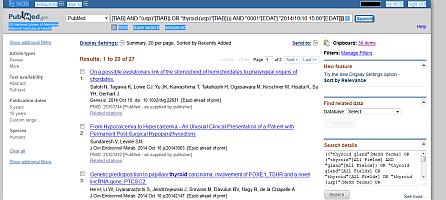Each and every day of the year I receive an alert from PubMed of new entries. These usually identify new papers which mention "thyroid". Sometimes they have next to no interest but quite astonishingly frequently they are relevant and potentially useful.
What I think few people realise is the sheer scale of this effort. Today's alert email contains 27 references from around the world. If that happened every day it would mean 9855 papers a year. (I think it must be quite close to that but the numbers do tend to drop a bit on Boxing Day.  ) OK quite a number are not worth looking at. But may do contain at least some nuggets.
) OK quite a number are not worth looking at. But may do contain at least some nuggets.
No - of course I don't read them all! No-one could. And a lot of the actual papers are behind "paywalls" which means that we cannot access them.
It seems important to me that when doctors dismiss thyroid issues as simple - the old "take a little white pill every day" and all will be well - they should see this. If it were that simple, there wouldn't be this scale of research. And even this is nowhere near enough.
To give anyone who is interested a taste of the alert emails, I have posted one here:
dl.dropboxusercontent.com/u...
Rod

